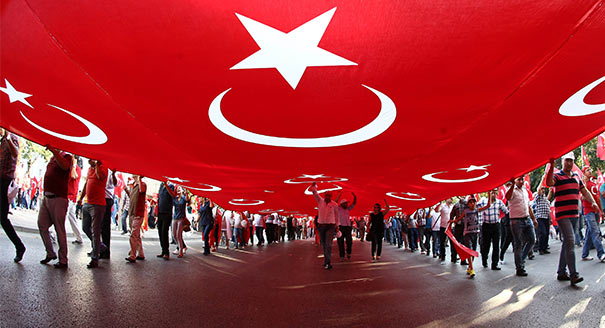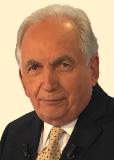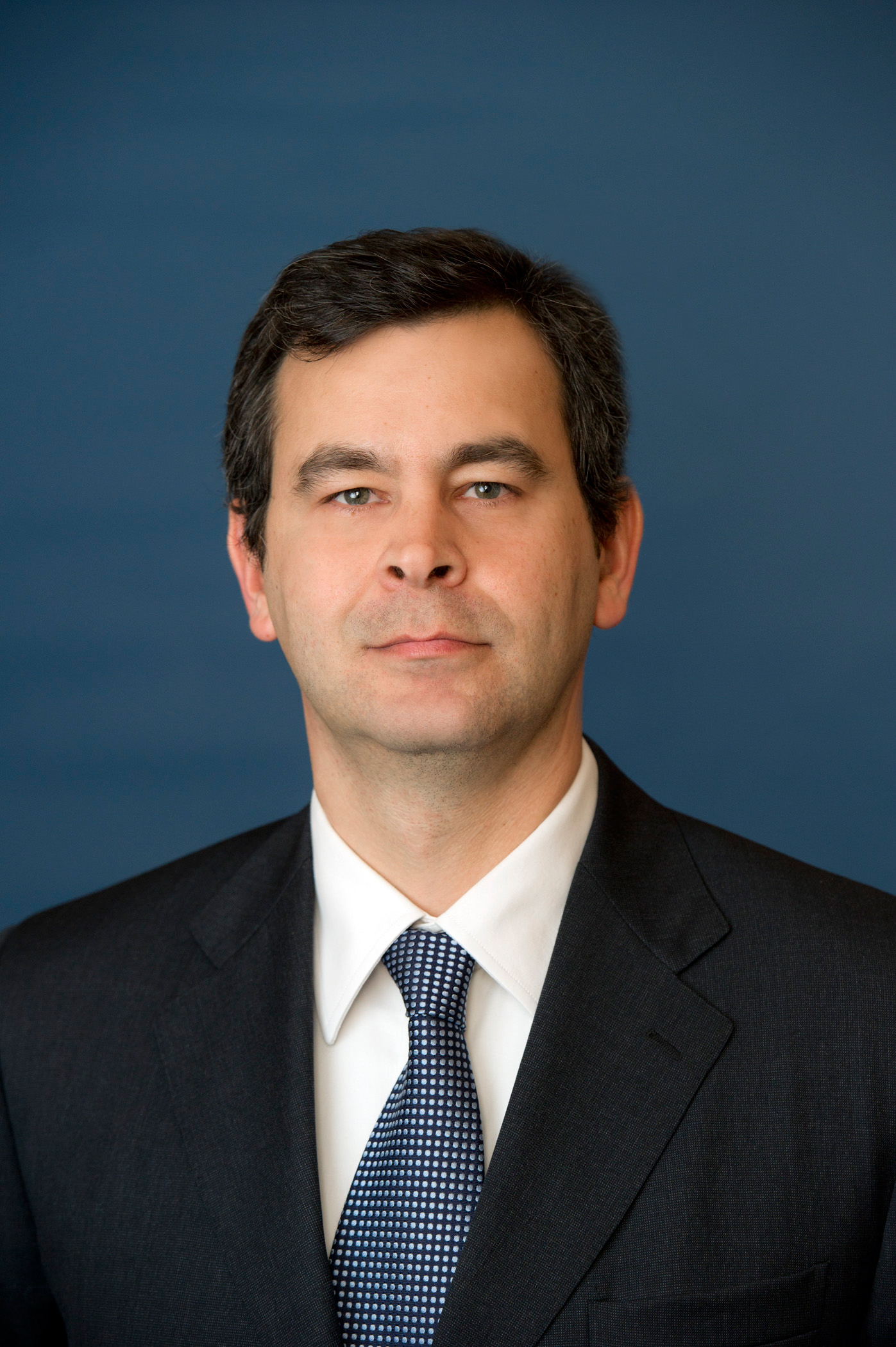Arms supplies from Russia to Iran will not only continue, but could grow significantly if Russia gets the opportunity.
Nikita Smagin
{
"authors": [
"Marc Pierini",
"Sinan Ülgen"
],
"type": "questionAnswer",
"centerAffiliationAll": "dc",
"centers": [
"Carnegie Endowment for International Peace",
"Carnegie Europe"
],
"collections": [
"Turkey’s Transformation"
],
"englishNewsletterAll": "",
"nonEnglishNewsletterAll": "",
"primaryCenter": "Carnegie Europe",
"programAffiliation": "EP",
"programs": [
"Europe"
],
"projects": [],
"regions": [
"Middle East",
"Europe",
"Türkiye",
"Iran"
],
"topics": [
"Political Reform",
"Democracy",
"Foreign Policy"
]
}
Source: Getty
On November 1, Turkey will hold its second parliamentary election in just five months. As in the previous contest, the outcome is proving tricky to predict.
On November 1, 2015, Turkey will hold its second parliamentary election in just five months. In a new Q&A, Marc Pierini and Sinan Ülgen explain the motivations behind Turkish President Recep Tayyip Erdoğan’s decision to call a snap vote, and they explore potential postelection scenarios.
Pierini and Ülgen argue that Ankara’s relationship with Turkey’s Kurds, the regional impacts of the war in Syria, and Turkey’s key ties with the West all depend on a working Turkish government. Yet with voters’ preferences seemingly unchanged since the last election in June, the result of the November 1 ballot appears tough to predict—again.
However, there is another reading of the current situation: the Turkish president called an election rerun in the hope that his party, the AKP, would this time secure a majority in the legislature and therefore avoid the need for a coalition. The June 7 election produced two adverse consequences for the president. With the AKP falling below a simple majority, the president faced the high conditions set by the main opposition CHP for its participation in a coalition: limiting the president to the current, nonexecutive role set out in the constitution and relaunching investigations into corruption allegations against members of the 2013 AKP government. And with the AKP falling far short of the three-fifths majority needed to launch a referendum on amending the constitution, the president’s goal of introducing an executive presidential system remained unachieved.
According to recent opinion polls, the political situation in Turkey on the morning of November 2 could end up being the same as on June 8. If this is the case, the formation of a coalition will be the key to restoring a working government after a lull of some five months.
The first is an AKP majority. Current polls indicate that the party could win a few more seats than it did in June but still fall short of a majority. Even if the AKP does win more than half of the seats in the parliament, the resulting government will be considerably weaker than past AKP governments, which enjoyed much larger majorities than the party is likely to achieve in November. Probability: 20 percent (author’s estimate).
The second scenario is a coalition between the AKP and the far-right Nationalist Movement Party (MHP). This is the coalition formula most favored by Erdoğan and the AKP grass roots, based on existing ideological overlaps. The AKP has little to fear from establishing a coalition with a similarly minded but smaller political entity.
The feasibility of such a scenario will greatly depend on whether the MHP leadership will, after the election, decide to relax some of its conditions for partnership. Among these are the unfettered investigation of graft allegations against members of the previous government, including Erdoğan’s associates; Erdoğan’s compliance with the constitutional limits on the presidency; and the end of ongoing peace talks between the Turkish government and Turkey’s restive Kurds. These are conditions that, if unchanged, will preclude a coalition with the AKP.
As a party that has remained out of executive power since 2002, the MHP will face considerable pressure from its grass roots to form a coalition. But the party leadership may end up deciding, as it did after the June election, that remaining in opposition would be a superior strategy, especially if the ensuing coalition government is viewed as likely to be short-lived. Probability: 15 percent (author’s estimate).
The third option is a coalition between the AKP and the CHP. This so-called grand coalition represents the best way forward for Turkey at this juncture. Such a broad-based agreement could ease the country’s current extreme political polarization and reintroduce a dynamic of democratic and economic reform underpinned by a new momentum toward the goal of EU accession.
Although many leaders of both the AKP and the CHP would be willing to establish such a partnership, Erdoğan seems to have little enthusiasm for this formula. Erdoğan continues to enjoy an almost-hegemonic influence over the AKP—despite being the president of the country and therefore required to be politically impartial. Consequently, a grand coalition could emerge if Erdoğan can be convinced that a new election would be detrimental to the country’s interests as well as to his political ambitions. Probability: 40 percent (author’s estimate).
Fourth, a CHP-MHP minority government could take office. Although arithmetically possible, the likelihood of this option is very slim as it would require the pro-Kurdish Peoples’ Democratic Party (HDP) to back a minority CHP-MHP coalition in the parliament. The HDP may be ready to do so, as the party stated after the June election, but the MHP does not want to be seen as enjoying the direct or indirect support of the HDP.
Nonetheless, even if such a minority government is politically unfeasible, the election of the speaker of the parliament will test the cohesiveness of the opposition. Following the June election, the opposition failed to act in unison to choose a new speaker. As a result, despite being in the minority, the AKP was able to have its candidate elected. This position is important because of the holder’s ability to shape the parliamentary agenda. If, after the November 1 vote, a minority coalition can act more cohesively and elect a non-AKP speaker, this would incentivize the AKP leadership to form a majority coalition government to reestablish control over the parliament’s agenda. Probability: 5 percent (author’s estimate).
Last, if none of these governments emerges, a new election may take place. The possibility of yet one more election cannot be ruled out, especially if Erdoğan remains convinced that a fresh vote could finally enable the AKP to win back a parliamentary majority. In that case, another election in March or April 2016 would be on the political agenda.
Once again, Erdoğan would have a key role to play. If the AKP were to win a few more seats in the November 1 election and inch toward a majority, Erdoğan would be inclined to pressure the AKP leadership to preempt a coalition with the CHP and force a third election. This outcome would be read not only as a signal of an upward trend in popularity for the AKP but also as an indication that public opinion is starting to be swayed by the AKP’s narrative that the loss of a single-party government is a recipe for political and economic instability. Probability: 20 percent (author’s estimate).
The likelihood of a coalition government would be strengthened if the AKP were to come out of the November election with no or very few gains. Also arguing against a third election is the economic backdrop, with the Turkish economy facing a slowdown and an increasingly difficult international environment.
Marc Pierini: The test for Turkish democracy on November 1 will take three different forms.
First, the vote itself must be democratic. The election should be held in an acceptable security context in which the vote is not disturbed by either terrorist actions or locally declared curfews. No one should be prevented from voting, for example if ballot boxes are moved out of rural areas for security reasons. And there should be credible, citizen-led monitoring of the ballot count, as was the case on June 7 with the civic initiative Voting and Beyond, through which thousands of ordinary citizens invigilated ballot counting.
Second, the outcome must conform to democratic standards. If no party wins a majority in the parliament, a coalition will become necessary. This is the normal outcome in any liberal democracy with a parliamentary system, and this is the expectation of a majority of citizens in Turkey who perceived the failure to form a coalition after the last election as a denial of democracy.
Third, the AKP could find itself in a situation in which it encourages defections from other parties. If the AKP failed to reach a simple majority by only a few seats, say under ten, the party could be tempted to bridge the gap by convincing an equal number of MHP deputies to leave their party after the election and join the AKP. This way of securing a single-party government would be perceived as another, more blatant denial of democracy.
Sinan Ülgen: A casualty of the increased political instability in Turkey has been the process of negotiations to reach a settlement with Turkey’s Kurds. The frequency of elections has affected the calculus behind these talks and led to a resurgence of violence. The AKP believed that by adopting a more hawkish tone and eventually suspending the negotiations, it could win back the nationalist vote and also delegitimize the pro-Kurdish HDP.
On the Kurdish side, the insurgent Kurdistan Workers’ Party (PKK) believed it was politically expedient to begin a new cycle of violence for similar reasons. The electoral success of the HDP in June, when the party entered the Turkish parliament for the first time, was seen as a threat by the PKK leadership, which did not want to lose its primacy in the Kurdish movement. At the same time, the Turkish government wanted to weaken the PKK and send a strong signal that the group would not be allowed to take advantage of the truce brought about by the political negotiations to rearm and prepare for a new round of fighting.
To the extent that the current cycle of violence is driven by electoral calculus, there is hope that a post-November government could revitalize the settlement talks and end the climate of unrest. An AKP-CHP grand coalition would be best placed to deliver this more optimistic scenario because of its broad political appeal. What is more, the fact that voters’ electoral preferences have not shifted since June, despite the resurgence of violence, should be taken as an indication that the political actors would see little benefit in a continuation of the fighting.
The PKK also has an incentive to end the violence and restart negotiations, given the high casualties the group has suffered as a result of the recent campaign by the Turkish military against it. That campaign has come at a time when the PKK is being confronted by the self-proclaimed Islamic State in Syria in a struggle that seems set to continue for the foreseeable future.
Marc Pierini: The impact of the war in Syria was already felt in the June election. The Kurds of Turkey were shocked in late 2014 by the failure of Ankara to protect the Syrian Kurds in the town of Kobanê against ethnic cleansing by the Islamic State. Meanwhile, Ankara has shown a distinct preference to fight the PKK over the Islamic State.
Ankara is now isolated because the United States is giving military support to the Syrian Kurds’ armed wing, the Peoples’ Protection Units (YPG), and Russia has explicitly recognized the importance of their political branch, the Democratic Union Party (PYD), in a future transition in Syria.
Although foreign policy does not necessarily play a major role in national elections, a large segment of Turkish voters may believe that the AKP government’s approach in Syria and its failure to confront the Islamic State has put citizens at a higher security risk.
Sinan Ülgen: Turkey’s foreign policy is likely to be affected substantively by the electoral outcome. Turkey is already recalibrating its foreign policy in light of the country’s perceived failure in the last few years to achieve its ambition of augmenting its regional influence. The worsening security dynamics in the region are also pushing Ankara in the direction of reprioritizing its ties with the West. This recalibration is likely to be accelerated under a grand coalition.
A shift in approach will in any case be triggered by the Islamic State–attributed suicide bomb attacks in Ankara on October 10. The bombings will force the Turkish government to become more engaged in the fight against the jihadists than it was before.
As a result of a deal with the United States reached in July 2015, Turkey has already agreed to open its air bases to the international anti–Islamic State coalition, and Turkish planes have started to hit Islamic State targets across the border in Syria. Now, this campaign is expected to gather momentum. The challenge for Turkish policymakers will be to mitigate the risk of retaliation by the Islamists, especially in advance of the election.
More broadly, the increasingly palpable Islamic State threat combined with the current Russian buildup in Syria will compel Ankara to review its position on regime change in Damascus. Turkey has so far been adamant about the departure of Syrian President Bashar al-Assad as a precondition to any settlement of the Syrian conflict. In the future, this condition may be altered, with Ankara accepting the inevitability of Assad remaining in power at least until a transition phase is initiated.
Marc Pierini: In the short term, Turkey’s relationship with the EU will be dominated by the refugee issue. On the surface, one could think that Turkey has gained an advantage over the EU, with many seeing the union’s recent overtures toward Ankara as the EU begging for Turkey’s help in dealing with the refugee crisis. Such a bargaining approach is ill conceived for both sides, as Turkey and the EU face the very same issues: coping with the long-term presence of Syrian refugees, with the associated challenges of education and job creation; restricting terrorist movements; disrupting the traffickers’ networks that make hundreds of millions of euros by moving refugees; and setting up a viable process for determining the refugee status of Syrians and other nationalities in both Turkey and selected EU countries. These critical issues should be dealt with jointly in a responsible manner.
Generally speaking, the medium- and long-term prospects for EU-Turkey relations are less favorable. The sharp degradation of the rule of law in Turkey since 2013—especially on the freedom of the media and the independence of the judiciary—does not create an environment in which the EU will be able to make extraordinary gestures to improve relations. It would take a return to an acceptable rule-of-law architecture for Brussels to modify this perception. A resolution of these divergences between the EU and Turkey will hinge on the formation and nature of a coalition government in Ankara.
Sinan Ülgen: A new Turkish government—especially a grand coalition—could take advantage of the improved EU-Turkish dynamic that has come about as a result of the refugee crisis. The situation has demonstrated the invaluable role that Turkey can play in contributing to the stability and security of Europe.
In many ways, Turkey’s collaboration will remain indispensable if the EU is to retain its political cohesion and successfully address this crisis. Ankara and Brussels are now negotiating an action plan that goes beyond the required steps to deal with the issue of Syrian refugees. This plan is also expected to incorporate elements designed to improve the EU-Turkish relationship like the fast-tracking of visa liberalization for Turkish citizens and a renewed push to revitalize Turkey’s EU accession talks.
The EU should accept the principle of burden sharing in relation to the refugee crisis. This would allow for the joint implementation of a comprehensive and well-funded program to enhance Turkey’s capability to provide humanitarian aid to the existing 2.1 million Syrian refugees on its territory. The EU should also help build up Turkey’s ability to launch longer-term programs to integrate the refugees into Turkish society and the labor market. All of these steps would undoubtedly create a more benign environment for anchoring Turkey to Europe.

Senior Fellow, Carnegie Europe
Pierini is a senior fellow at Carnegie Europe, where his research focuses on developments in the Middle East and Turkey from a European perspective.

Senior Fellow, Carnegie Europe
Sinan Ülgen is a senior fellow at Carnegie Europe in Brussels, where his research focuses on Turkish foreign policy, transatlantic relations, international trade, economic security, and digital policy.
Carnegie does not take institutional positions on public policy issues; the views represented herein are those of the author(s) and do not necessarily reflect the views of Carnegie, its staff, or its trustees.
Arms supplies from Russia to Iran will not only continue, but could grow significantly if Russia gets the opportunity.

Nikita Smagin
On the fourth anniversary of Russia’s full-scale invasion, Carnegie experts discuss the war’s impacts and what might come next.



Eric Ciaramella, Aaron David Miller, Alexandra Prokopenko, …
The use of technology to mobilize Russians to vote—a system tied to the relative material well-being of the electorate, its high dependence on the state, and a far-reaching system of digital control—is breaking down.

Andrey Pertsev
New data from the 2026 Indian American Attitudes Survey show that Democratic support has not fully rebounded from 2020.


Sumitra Badrinathan, Devesh Kapur, Andy Robaina, …
France and Germany’s failure to agree on the Future Combat Air System (FCAS) raises questions about European defense. Amid industrial rivalries and competing strategic cultures, what does the future of European military industrial projects look like?

Rym Momtaz, ed.